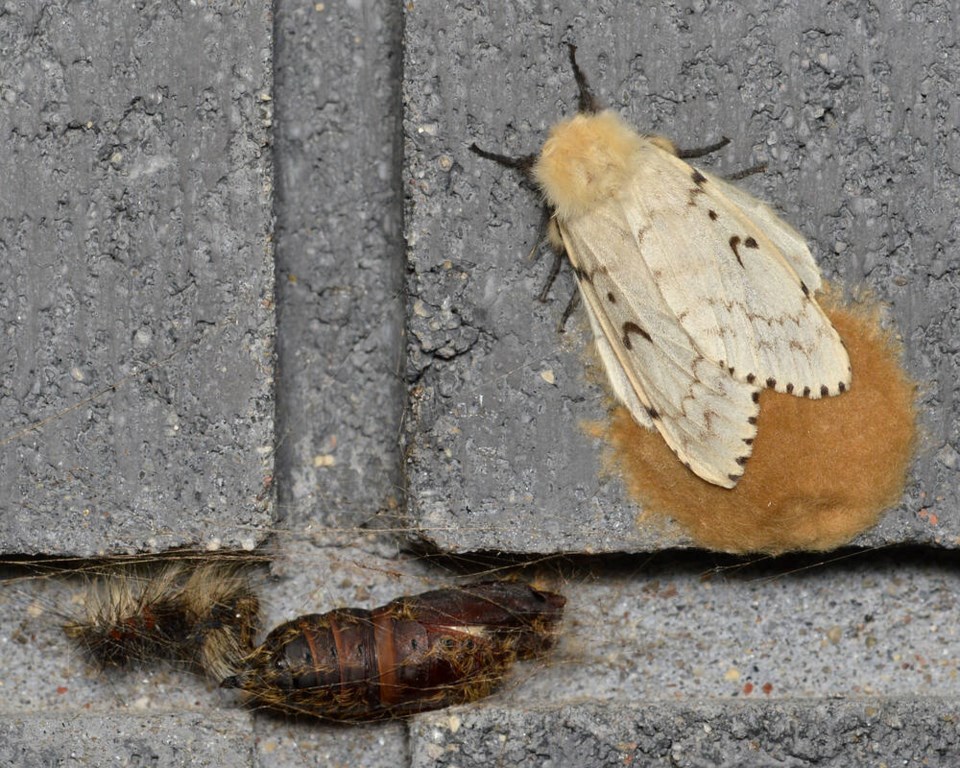The B.C. government plans to conduct a targeted aerial-spray program at three locations on southern Vancouver Island this spring to control invasive Lymantria moths — formerly known as gypsy moths.
Last year, scientists monitored moth populations in View Royal, Nanoose Bay, Cowichan Lake and five areas in the Fraser Valley and the Lower Mainland and found they have increased dramatically, likely because of outbreaks in Ontario and Quebec over the past three years.
Egg masses are commonly transported on recreational vehicles and outdoor household articles from affected areas outside the province.
The planned treatment areas on the Island include 50 hectares south of Thetis Lake Regional Park and the Trans-Canada Highway, 1,068 hectares south of Nanoose Bay to the northern boundary of the City of Nanaimo and 402 hectares at the easternmost tip of the lake and part of the Town of Lake Cowichan.
The ministry is planning as many as four applications of Foray 48B in the specified areas between April 15 and June 30. The active ingredient in Foray 48B is Bacillus thuringiensis var kurstaki (Btk), a bacteria naturally present in soils throughout the province. The bacteria has been approved for the control of Lymantria moth larvae in Canada since 1961 and is commonly used in organic farming.
The bacteria affects the Lymantria moth’s digestive system. It does not harm humans, mammals, birds, fish, plants, reptiles, amphibians or bees.
Scientists fear the moths could become established if the proposed spraying is not carried out this spring, saying that if left untreated, the moths could spread to other areas and pose a threat to native trees, such as Garry oak, arbutus, red alder, aspen, cottonwood and maple.
Orchard fruit trees, nut trees and many species of urban ornamental trees would also be affected, as well as food crops such as apples, blueberries and other fruits.
The Ministry of Forests, Lands, Natural Resource Operations and Rural Development has applied for an amendment to its pesticide use permit.
Residents in the planned spray areas can submit their comments about the application to amend the pesticide use permit (refer to Permit No. 738-0032-21/24) by March 12 for evaluation by the Integrated Pest Management Act administrator, Ministry of Environment and Climate Change Strategy, Suite 200-10470 152 St., Surrey, B.C. V3R 0Y3.



